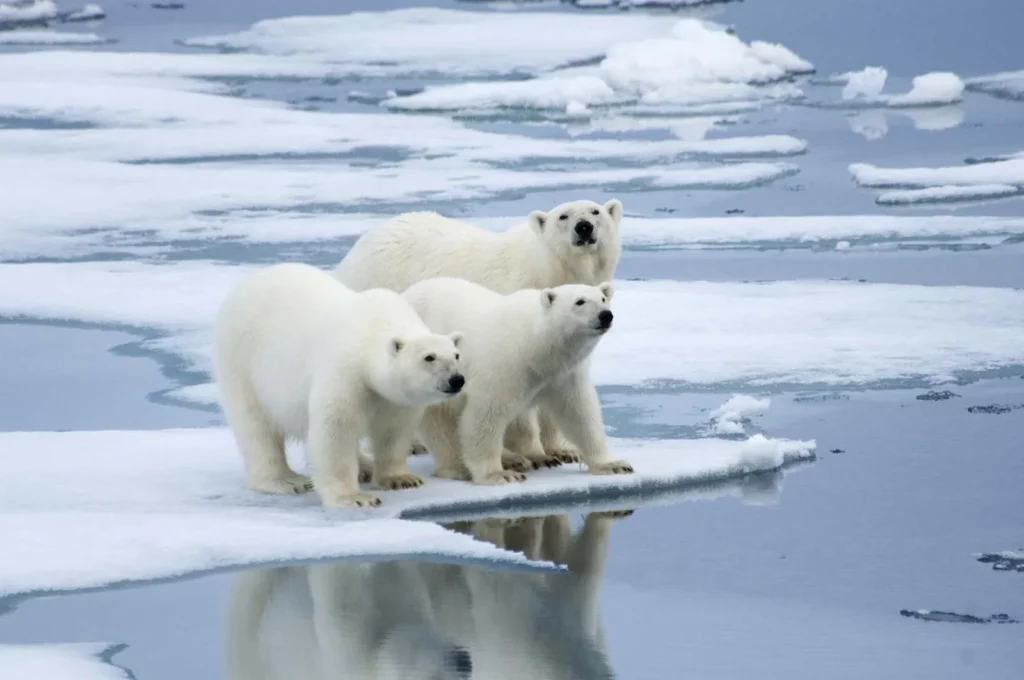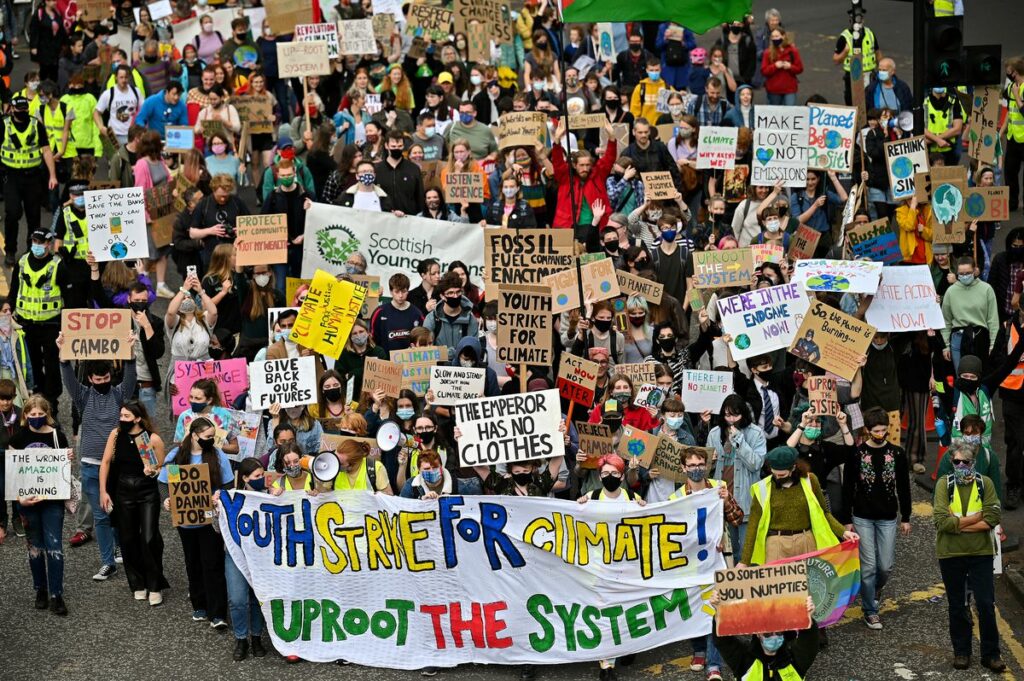There seems to be a significant debate going on among depressed climate alarmists about whether people who are psychologically crushed by the imminent climate Armageddon should fight their rage and depression through political action or embrace it through political action. How about taking a second look at the evidence and realizing there is no reason for despair or depression? No, no, we all need is therapy. Unless it’s the last thing we need.
In what Florence King dubbed “the age of the teddy bear on the sidewalk” it’s not surprising that there would be support groups for people with what CBS dubs “eco-anxiety, ‘a chronic fear of environmental doom.’” For people like therapist Laura Schmidt the solution, rather traditional, is to get busy fixing things: “I saw that no government was taking it seriously enough and that caused me a lot of eco-grief and climate anxiety. And so what we did is designed a program that can help other people move from that place of despair and disempowerment to building community.”
What help exists for people so disassociated from reality that they think governments aren’t committed to fighting climate change was not made clear in the article. And to be fair her group has a great name: “The Good Grief Network”. But perhaps they would feel better if they took a second look at the evidence and realized the four horsemen of the climate apocalypse are not currently galloping straight over our fields and homes.
Bjorn Lomborg thinks all the doom and gloom is a problem because it somehow prevents people from looking out the window and noticing that things are going great. Our own view is that the reason people tell pollsters they think climate change is a really big thing, man, but won’t support carbon taxes is that they look out the window and realize whatever is wrong in their lives it’s not because the sky is on fire and the crops just wilted.
Another danger is finding yourself curled up and whimpering in the tofu. Our favourite quotation in this regard comes from Hans-Otto Pörtner, “an ecologist who co-chairs the IPCC’s working group on impacts, adaptation and vulnerability” who says “We don’t want to tell people what to eat. But it would indeed be beneficial, for both climate and human health, if people in many rich countries consumed less meat, and if politics would create appropriate incentives to that effect.” So we don’t want to tell people what to eat. But we sure want to tell them what not to eat. Put down the burger and back away slowly. The prospect of governments trying to stop us from eating meat is not very encouraging, especially since when they declared war on obesity back in the 1970s we swelled up like dirigibles.
Given the famous negative effects of negative emotions, it’s odd how many people are determined to fill the public with gloom over the coming disaster. Including mainstream media, despite what Schmidt and many others believe about state indifference to global warming. For instance the British state broadcaster, the BBC, seems determined to hammer children with so much bleak environmental news as to fulfil Greta Thunberg’s famous wish, wildly applauded by adults: “I don’t want your hope. I don’t want you to be hopeful. I want you to panic. I want you to feel the fear I feel every day.”
Forget the power of positive thinking. Embrace your inner bleak. Is there any other area in which that advice would be welcomed? Has psychology too been politicized by climate alarmism?
It sure feels that way when the American Psychological Association weighs in on how to convert climate skeptics as though we were the ones with mental disorders. (You can’t say it about the other side, apparently. Especially not Ms. Thunberg. But we’re fair game, including the new “Centre for Studies of Climate Change Denialism” at Chalmers University of Technology in Sweden, which links climate change denial to xenophobia and other unsavory disorders.) And when so many people urge us not to pull ourselves together on environmental matters. Especially not in public where you might frighten the horses of the apocalypse.
For instance Maria Tanyang of the Australian National University and Yvonne Su of Canada’s own University of Guelph say that all those ghastly stories of heroic survivors of extreme weather are preventing us from a really bitter ecofeminist panic. “Disasters, as forms of crisis, can offer opportunities to more sharply focus on historical and ongoing inequalities,” they say. And thus they lament “romanticized” tales of resilient communities rebounding from, for instance, the disaster of 2013’s Typhoon Haiyan in the Philippines. “National media and international humanitarian coverage of the Haiyan post-disaster recovery strongly drew upon narratives of survival and highlighted stories of communities joining together against all odds. The recovery was attributed to the innate resilience of Filipinos represented by bayanihan, a traditional custom of mutual assistance. Yet we found evidence — based on a survey of local residents and from secondary sources, including official humanitarian and evaluation reports — that bayanihan was short-lived. Community well-being was secondary or regarded as a positive side-effect to securing self-interest or family welfare in the immediate aftermath of the disaster.”
As if self-interest and family welfare are bad things. Why? Well, it turns out that “The myth of resourcefulness glorifies the capacity of female disaster victims to not just overcome the daily struggles of poverty and post-disaster survival, but to even ‘thrive,’ ‘innovate’ or take the initiative to stretch available resources. This erases all the gendered sacrifices, including physical and emotional stress, from intensified care obligations.” What we really need is bad news about climate disasters in which women and minorities are hardest hit and resilience is a patriarchal plot. Now there’s a rallying cry to get you out of bed… to hide under it.
As David Harsanyi recently complained, journalists have a long history of hyping extreme statements about ecopalypse, from Paul Ehrlich’s hundreds of millions starving by the end of the 1970s to the former chair of psychiatry at Duke University saying Donald Trump “may be responsible for many more million deaths” than Stalin, Mao and Hitler combined because of his climate policies. One might easily become depressed at the state of public discourse in the face of such twaddle. Or even alarmed.
The head of the World Meteorological Association, Petteri Taallas, recently warned that just when we got those blasted skeptics silenced, a bunch of nutbars on the other side started demanding crazy stuff in a scary way. He didn’t put it that way, of course. “While climate scepticism has become less of an issue, now we are being challenged from the other side. Climate experts have been attacked by these people and they claim that we should be much more radical. They are doomsters and extremists; they make threats.”
It’s not obvious whether Taallas’s concerns included only the AOCs, Greta Thunbergs and Extinction Rebellions of this world, or those on the fringe of the fringe like Swedish scientist Magnus Söderlund saying we should eat our dead to reduce emissions if only the infamous “conservative attitudes” of Swedes didn’t make them think eating people is bad. (And it’s no good telling him “If the Juju had meant us not to eat people, he wouldn’t have made us of meat” because eating meat is one taboo progressives increasingly favour.) But as Michael Shellenberger recently argued, sufficiently extreme and threatening rhetoric, including environmental rhetoric, can lead unstable people to act in violent ways. Surely an argument against cultivating the kinds of mental states that feature in diagnostic manuals.
Hysterical feelings about climate might make you do really dumb and dangerous things, like wrecking your economy for nothing. Which really would be depressing.



Every day, society gets a little bit closer to "Soylent Green" becoming an accurate prophecy.
Do you think now that the UN and WHO has been exposed as giving false information for Covid, more people will question what they have said about Climate Emergency/change? It seems now is a good time to draw the lines between what they have said, their models, and what they said about Covid.